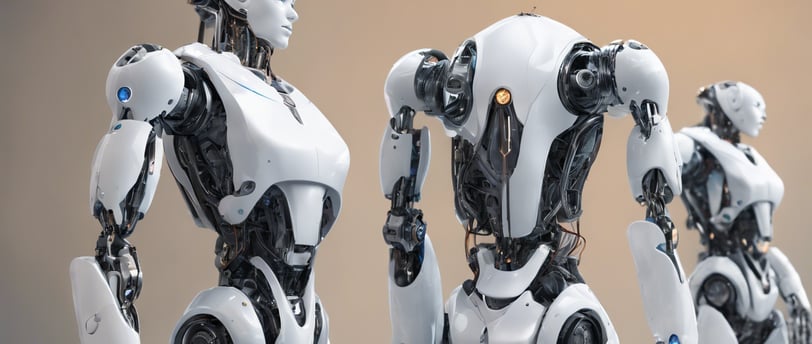Is AI Stealing Our Present-Day Jobs?
Find out whether AI is stealing our jobs. With the current widespread, growing use of AI in daily lives, we suggest you have a look at this informative article raising concerns about the future security of our jobs.
7/6/20242 min read


The Growing Influence of AI in the Workforce
Artificial Intelligence (AI) has been making significant strides in various industries, raising concerns about its impact on employment. As AI systems become more sophisticated, they can perform tasks that were once considered the exclusive domain of humans. This development has led to a debate about whether AI is stealing our present-day jobs.
Examples of AI Replacing Jobs
Several sectors have already experienced job displacement due to AI. For instance, the manufacturing industry has seen a rise in automation, with robots taking over repetitive tasks on assembly lines. In customer service, chatbots and virtual assistants are increasingly handling customer inquiries, reducing the need for human operators. Additionally, the transportation sector is witnessing the advent of self-driving vehicles, which could potentially replace truck and taxi drivers.
Instances Where AI Is Complementing Human Roles
While AI has replaced certain jobs, it is also important to note that it has created new opportunities and complemented human roles in various fields. In healthcare, AI-powered diagnostic tools assist doctors in identifying diseases more accurately and swiftly. In education, AI-driven personalized learning platforms help teachers tailor instruction to individual students' needs, enhancing the overall learning experience. Moreover, AI in finance aids analysts by sifting through large datasets to provide actionable insights, improving decision-making processes.
The Future of Work in an AI-Driven World
The future of work in an AI-driven world is likely to be a blend of job displacement and creation. According to a report by the World Economic Forum, while AI and automation may displace 75 million jobs by 2022, they could also create 133 million new roles. The key to navigating this transition lies in upskilling and reskilling the workforce to adapt to new job requirements. Emphasizing education and continuous learning will be crucial in ensuring that workers can thrive alongside AI.
In conclusion, while AI is certainly reshaping the job market, it is not solely about stealing jobs. It is also about transforming roles and creating new opportunities. By embracing these changes and preparing for the future, we can harness the potential of AI to enhance our work lives rather than diminish them.
